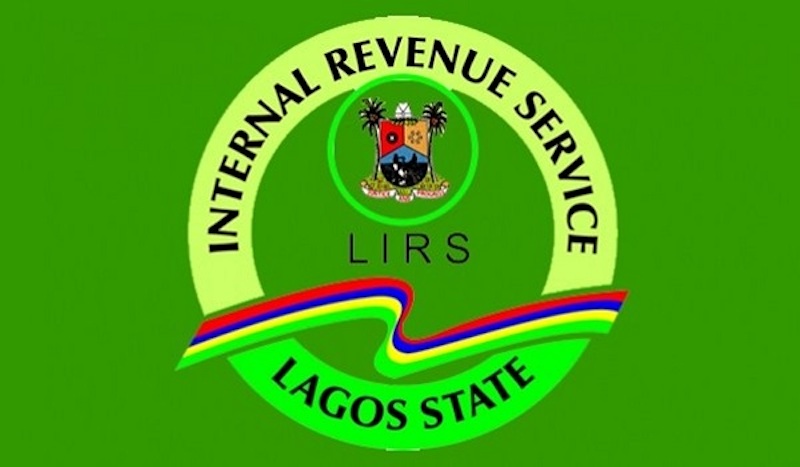
The Lagos State Internal Revenue Service (LIRS) has urged owners of restaurants, hotels, and event centres operating in the state to contribute to the state’s development by prioritising the monthly collection and remittance of a five per cent consumption tax on all consumables and personal services.
The State on June 22, 2009, enacted the Hotel Occupancy and Restaurant Consumption Law of Lagos State otherwise called Hotel Consumption Law, which imposed consumption tax at five per cent on the value of goods and services consumed in hotels, restaurants and event centers within the state. The tax base is the total cost of facilities, consumables or personal services supplied to a consumer in, by or on behalf of the hotel, restaurant or events centre.
Speaking on The Tax Talk programme monitored on TVC, Director, New Growth, LIRS, Jimi Aina, said while consumption tax was a major source of revenue for the Lagos State Government, which uses the funds to provide public amenities and services such as healthcare, education, transportation, and security, owners of restaurants, hotels, event centres, etc are obligated to register with the LIRS as collecting agents.
Aina, submitted that contrary to the misconception a lot of people have about consumption tax, the state has not imposed additional taxes on restaurants, hotels and event centres, rather, consumers who purchase taxable goods or services in the state are responsible for paying the consumption tax.
The tax is already included in the price of the goods or services and is paid to the collecting agent who collects it on behalf of the Lagos state government.
“Many people misunderstand the concept of consumption tax. It is often thought that this tax is an additional burden on hotels and restaurants, but this is not the case. In reality, it is the customers who are taxed when they dine out, attend events, or have drinks at a bar.
“The tax rate is five per cent. By paying the consumption tax, consumers contribute to the development and maintenance of these amenities and services.”
“According to Section 1 of the Lagos State Consumption Tax Law, consumption tax is defined as a tax on the supply of goods and services in Lagos State, which is charged and payable by the consumer.
“Consumers who purchase taxable goods or services in Lagos State are responsible for paying consumption tax.
“The tax is included in the price of the goods or services and is paid to the collecting agent who collects it on behalf of the Lagos State Government,” he said.
Speaking further, the New Growth Director said while collecting agents (restaurants, hotels and event centres) have the responsibility of collecting the taxes from consumers and remitting to the LIRS, it was also important to factor in the deadline for remittances.
He explained; “According to the Lagos state consumption tax law, the remittances must be made not later than the 20th day of the month following the month of collection. For example, consumption tax collected in September must be remitted to the LIRS on or before the 20th of October.”
Aina, noted that there were legal implications to non-remittances by collecting agents who failed to remit consumption tax collected from consumers to the LIRS within the prescribed time.
“Where a Collecting Agent fails to make a return or remittances as and when due, LIRS may make an estimate of the total amount due and such estimate shall become due not later than 21 days of service of such a notice.
“Failure to remit the tax collected within the stipulated time will attract a 10 per cent penalty of an amount not remitted plus interest at five per cent above the prevailing Monetary Policy Rate of CBN of Nigeria. Such collecting agent may also face sanctions including closure of business and prosecution,” he submitted.
According to the LIRS, the monthly filing of returns on sales using UCL 2 form must be accompanied by a report stating: The total amount of payments made for all chargeable transactions during the preceding reporting period; the amount of consumption tax collected by the agent during the reporting period, and any other information required by LIRS to be included in the report.
Human rights advocate Dele Farotimi has been released from the Ekiti State correctional facility after…
A Chief Magistrate in Ibadan, Olabisi Ogunkanmi, has ordered the remand of Prophetess Naomi Silekunola, the…
Popular Nollywood actress, Nkechi Blessing has finally got engaged to her younger lover, Xxssive. This…
Al Nassr captain, Cristiano Ronaldo, has jokingly reacted to a Lionel Messi taunt as he…
Popular Nollywood actress, Regina Daniels who is still enjoying her trip to the United States,…
Jay-Z has no plans to show loyalty to longtime friend Sean 'Diddy' Combs amid the…